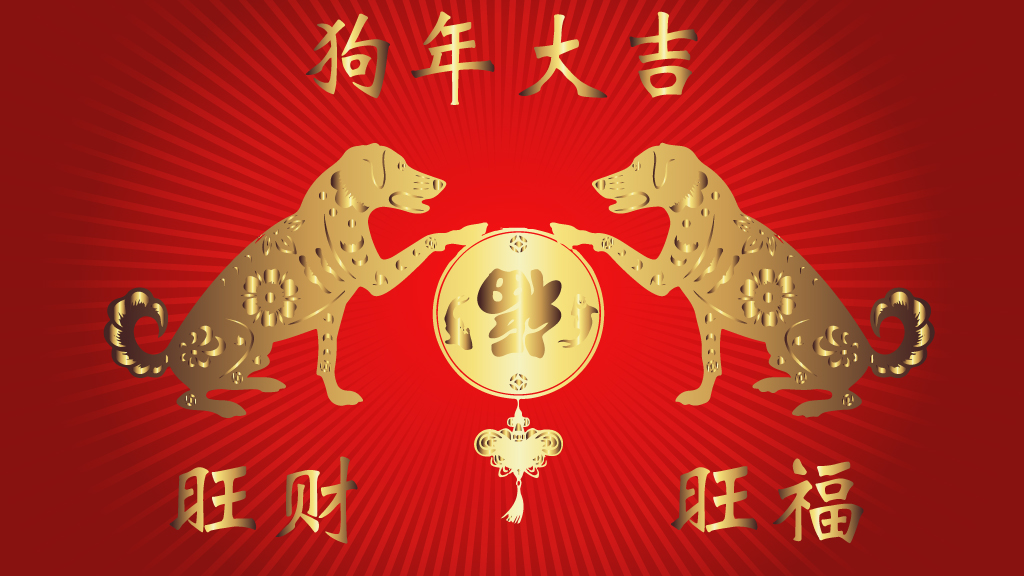A woofing new year to you all

Puns and plays on words are a huge feature of Chinese. There are lots of words that sound similar, and Chinese characters enable people to make visual puns too – playing with characters that look alike or share visual elements.
In the year of the dog, which just started, many greetings involve the play on words between wàng 旺, meaning abundance, and wāng 汪, the sound that dogs make.
Yes, Chinese dogs don’t say “woof” or “bow-wow”, they say “wāng”. If you thought all dogs made the same sound, you’re in for a surprise. Dogs in the Spanish-speaking world say “guau-guau”, Korean dogs prefer “mung-mung”, the Dutch hear barking as “blaf-blaf” while hounds in the Irish Gaeltacht pronounce “amh-amh” with ease.
As the traditional Chinese lunar calendar progresses through the series of twelve animals, different greetings are used according to the animal. Last year we had fun with 吉 jí, lucky, which sounds like 鸡 jī, chicken. This year is even better since 旺 and 汪 also look alike. You will often see an image of a dog with three 旺 characters, which when read aloud sounds like woof woof woof. You then find wishes of abundance: 旺财 wàng cái abundant wealth, wàng fú 旺福 abundant happiness, etc.
A perenial pun works with 倒 dào turn upside-down and 到 dào arrive. If you hang the character for happiness the wrong way up, when you say “happiness is upside-down” it sounds like “happiness has arrived”.
I sincerely hope happiness has arrived for you. I wish you woofing fortune, woofing health and a woofingly happy year of the dog.
